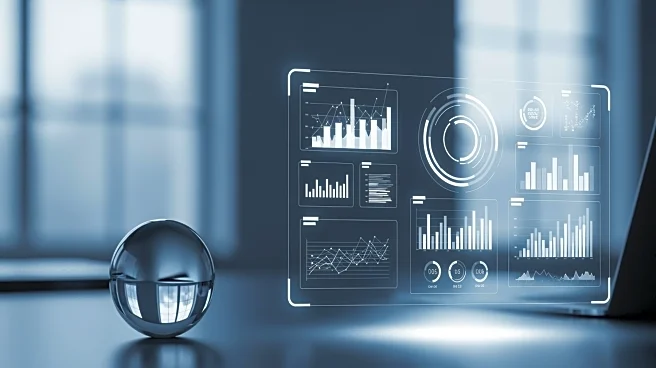What's Happening?
In the current climate of tightening budgets and increased accountability, B2B marketing leaders are prioritizing the strategic use of event data to maximize the value of their experiential strategies.
According to Forrester's State of B2B Events 2025 report, 68% of global marketing leaders report stagnant or declining event budgets for the second consecutive year. Despite this, 67% emphasize the importance of leveraging event data as their top strategic focus. The challenge lies in defending expenditures with comprehensive data, moving beyond simple revenue attribution to a holistic understanding of how experiences drive actions, shift brand perception, and deliver long-term business impact. Research from Jack Morton and Infegy highlights that social content from live experiences significantly outperforms standard branded posts, driving higher engagement and positive sentiment. To capture the full impact of brand experiences, marketers are encouraged to adopt a robust measurement framework encompassing audience actions, brand impact, and business impact metrics.
Why It's Important?
The emphasis on data-driven strategies in B2B marketing reflects a broader trend towards accountability and efficiency in business operations. As budgets tighten, marketers are under pressure to justify every dollar spent, making data a crucial tool for demonstrating the value of experiential marketing. By focusing on comprehensive metrics, businesses can better understand audience engagement, brand perception, and business outcomes, ultimately leading to more informed decision-making and strategic planning. This shift towards data-centric strategies not only helps in defending marketing expenditures but also enhances the ability to create impactful experiences that resonate with audiences and drive tangible business results. Companies that successfully integrate these strategies are likely to see improved brand trust, increased sales productivity, and stronger long-term loyalty among their customers.
What's Next?
As B2B marketers continue to navigate budget constraints, the integration of event data into broader marketing strategies is expected to become increasingly sophisticated. The use of modern tools and technologies, such as event tech platforms, will facilitate the collection and analysis of both quantitative and qualitative data, providing a comprehensive view of performance. This data integration will enable marketers to re-engage attendees post-event, nurturing them with personalized, data-driven journeys that shorten the sales cycle and enhance customer loyalty. Additionally, the focus on measurement will drive innovation in experiential marketing, as brands seek to design experiences that not only generate awareness but also deliver long-term business impact. As the industry evolves, marketers who prioritize clear measurement plans and data integration will be better positioned to achieve meaningful growth and maintain a competitive edge.
Beyond the Headlines
The shift towards data-driven experiential strategies in B2B marketing highlights broader implications for the industry, including ethical considerations around data privacy and the need for transparency in data collection and usage. As marketers increasingly rely on data to inform their strategies, they must navigate the complexities of data protection regulations and ensure that their practices align with ethical standards. Additionally, the focus on data may lead to cultural shifts within organizations, as teams become more data-literate and prioritize evidence-based decision-making. This evolution may also influence the way brands interact with their audiences, fostering more authentic and personalized connections that enhance brand loyalty and trust.










